Miseducation
New York City is home to the nation’s most segregated school system, a fact that surprises those who think of the Big Apple as a progressive beacon. Deep inequities exist at every level of the NYC school system.
And who better to report on these issues than the students who experience them firsthand? Grab a pen and get ready to take notes. Our student reporters are taking you to school.
Subscribe on Apple Podcasts | Google Play | Spotify
The Latest
Credit-recovery programs give students additional opportunities to earn course credits they need for the next grade or graduation. But do these second chances to pass give the system permission to fail? Jeremiah Dickerson investigates.
Gender and sexuality alliances once led the charge for queer student activism. But student reporter Mher Melikyan says that’s changed — and that it’s time for GSAs to rebrand and reclaim their power.
New York City received a “D” in financial literacy. Noa Salas Adam makes the case for mandating a full-semester personal-finance course.
New York City schools are increasingly adopting restorative justice practices, but are students bought into the new approach? Peer mediator Autumn Wynn makes the case for student-led circles as one missing link.
Missing Voices
Journalism’s lack of diversity is widely acknowledged, but whose responsibility is it to fix?
Against significant odds, three New York City high schools try to launch student newspapers.
After decades of decline in school journalism programs, can a scrappy new effort bring student newspapers back?
Students at Pace High School are building The Pacer from the ground up, while The Classic staff at Townsend Harris High School seek to continue a tradition of journalism excellence.
Questioning the Status Quo
At a time when 1 in 10 public school students are experiencing homelessness, why isn't the city doing more to support them?
There's an effort to level access to Advanced Placement courses in NYC schools. Is it working?
At my middle school, I took an art class that had no art teacher. At my new school, the basement has ten music studios.
Students eat in the cafeteria every day, and yet conversations about education often leave out this crucial element of our daily lives as students.
When her school implements a new policy requiring students to lock their phones in pouches during the school day, Zainab and her peers have some concerns.
When a teacher makes an offensive comment about Black people in class, Black students are unsatisfied with the school’s response.
New York is one of just eight states that requires high school exit exams. Seems like time for a new approach.
The FAFSA seems simple enough: fill out the form, get financial aid, go to college. Well… not quite.
We get it. The "birds and the bees” talk is awkward. But if we want young people to be informed and safe, NYC schools’ sex education policies need to change.
Who's really calling the shots when it comes to school start times? Is student health and well-being even on the agenda?
P.S. Weekly
In Spring 2024, P.S. Weekly graduated to its own podcast, produced in collaboration with Chalkbeat New York.
Episode 8 of P.S. Weekly tackles the emotional and social fallout of the pandemic, looking at mental health issues that left many students unable to attend class.
Episode 7 of P.S. Weekly explores the state of youth climate activism, ranging from apathy to action, and one Manhattan student’s push to get her high school to compost.
Episode 6 of P.S. Weekly wades into the complicated world of New York City school bathroom policies, including the much loathed 10-5-10 rule limiting use between and during classes.
There’s no way to ignore the rise of AI in schools. Students are embracing it. Educators are battling it. Policymakers are trying to get ahead of it. There's no turning back. But are there some classes where AI just doesn't belong?
Episode 4 of P.S. Weekly tackles teacher turnover and how turbulent relationships between teachers and administrators might be a major contributing factor.
What happens when you’re afraid to apply for financial aid?
First-gen students — including those with undocumented parents — share the fears, barriers, and high stakes of navigating the FAFSA.
Why does New York City take such a patchwork approach to sex education—and what do students say needs to change?
What’s the state of ethnic studies in New York City schools? And how does recent political opposition from the Trump administration threaten its expansion?
Students share firsthand perspectives on the complexities of high school admissions, resource gaps, and the urgent need for systemic change in New York City.
While protests over the Israel-Hamas war have gripped New York City college campuses, we look at how high schoolers have reacted — and the student freedom of speech issues being raised.
What happens when a teen wants therapy but their parents are unsure? And is NYC’s bold initiative to offer free virtual therapy to teens working?
In P.S. Weekly’s food episode, fourth graders visit NYC schools’ test kitchen, high schoolers rate grilled cheese sandwiches, and students dish on having microwave access.
Hear what the leader of the NYC public school system had to say about a new "Hidden Voices" history curriculum, school start times, the persistence of school segregation, cell phone policies, and more.
With college admissions in flux and the NYC school system shifting its emphasis toward "career pathways," two students prepare for life after high school.
More than 200,000 New York City students have a disability classification that entitles them to specific learning accommodations — but do they always get them? Students share their experiences.
How students and educators respond when the national book banning wave arrives in New York City
A new weekly podcast from The Bell and Chalkbeat New York.
New Yorkers are voting to decide how to spend $5 million of the city's money.
Adults seem to have a lot to say about youth mental health. We have some thoughts of our own.
A special preview of our upcoming Miseducation season: Questioning the Status Quo
Live from SXSW EDU, student data privacy experts discuss how efforts aimed at keeping students safe can do them harm.
A high school senior reflects on his educational journey.
Coco and Bissiri go to public high schools a few miles away from each other in Manhattan, but their experiences are worlds apart.
A look at what’s changed — and what hasn’t — in the decades long fight for school integration in New York City.
A Brooklyn minister who led the 1964 NYC school boycott argues for school desegregation in wake of the protest.
Miseducation student reporter Bree Campbell digs into the chatGPT debates with NPR reporter Emma Bowman, who’s been covering the impact of the new AI technology on schools.
After a scary incident at school, a daughter tries to get her mother to open up about mental health.
A conversation about MLK's playbook for the Civil Rights Movement.
Inside the effort to support the large number of NYC students experiencing homelessness.
Keeping Score
Produced in partnership with WNYC Studios, visit our special series page for photos, data, and bonus content.
The series ends with a final test for the Jaguars at the city championship.
What does it mean to lead a team in an anti-racist way?
How did the schools in the John Jay building become divided in the first place?
Two sports programs – rivals under a single roof – are set to merge. Students ask what it will take for the building to live up to its new motto: “We Are One.”
Special Reports
What if the key to better student attendance isn't more discipline but more support?
When a Queens principal threatened to suspend students for following provocative Instagram accounts, did he go too far?
As we kick off our first ever spring fundraising drive, one of our student reporters shares what working with The Bell has meant to him.
The incredible true story of Black ingenuity in a small Mississippi Delta town founded by formerly enslaved men.
In Our Own Voices
The topic of mental illnesses and disabilities has always hit close to home for me.
The issue of freedom of religion within public schools can be a complicated one, so what does practicing one's religion look like in the nation’s largest public school system?
I wanted to take you on a day of my life in school during Omicron, from the morning to dismissal, to show everyone what school really was like. This is January 14th.
Every student in NYC public schools goes through the high school admissions process. About 80,000 eighth graders every year researching, and ranking, and waiting, and ultimately landing in one of more than 400 high schools. My process surprised lots of people. Not because of the school — Edison — that I got into. But because of the school I turned down.
What is the impact of metal detectors on the students in predominantly Black high schools across New York City and what we can do to change it?
In my selective high school it’s easy for students of color – including me – to feel disregarded. But every now and then you find a supportive adult who goes out of their way to make you feel seen.
I didn’t expect for it to be this hard to navigate my high school years, but then halfway through my sophomore year, Covid hit.
Have you ever had that one person in your life that just kinda opened your eyes and changed your perspective?
Unmuted
How did students manage applying to college at the height of a global pandemic?
Nearly four years after we first reported on the fight for sports equity in NYC, we have an update.
School sports have never just been about the sports themselves — and when they got cancelled, people finally realized how important they actually are.
School officials have said a lot about the importance of supporting students’ mental health throughout the pandemic, but do their actions match their words?
The story of how nine teenagers came together virtually during a pandemic to create something special.
Students in a Pandemic
Fearing my grandmother’s sudden departure from this world was the worst thing I could think of, but a few years ago when she was diagnosed with Alzheimer’s, I knew my greatest fear would be being forgotten.
When the pandemic forced schools to close in March, 75,000 New York City teachers had to shift quickly to remote teaching. This is a story about one of those teachers.
I had to navigate language barriers, confusing websites, financial aid forms, and decision deadlines with only the help of my college counselor, who became harder to reach when the pandemic struck because she was understandably juggling work and home life.
Titilayo is one of thousands of New York City students who struggled accessing remote classes this spring.
We kick off a brand new season, “Students in a Pandemic,” with a story about a New York City student with learning disabilities, told by her sister.
Transfer High Schools
In the season finale from The James Baldwin School, we take a trip to the principal’s office.
A student transfers from a strict charter school to James Baldwin, where she runs into her former teacher, who just so happens to produce a podcast.
Adriana used to compete with friends to see who could make substitute teachers cry first. What happened when she transferred to a school that embraces restorative justice?
When Javier Mata’s habit of not doing homework caught up with him, he transferred from his competitive, college prep school to a small transfer high school called The James Baldwin School.
How does New York City support students in need of a second chance?
A preview of Season 3, coming in early 2020
64 Years Late
In an exclusive interview with the Miseducation team, Chancellor Carranza spoke about integration, student discipline, sports, and lots more.
High school senior Amya Shaw is one of approximately 115,000 New York City students living in temporary housing. This is her story.
Coco and Bissiri go to public high schools a few miles away from each other in Manhattan, but their experiences are worlds apart.
While the Miseducation team gears up for the second half of Season 2, Sabrina and Taylor check in with a few updates and some listening recommendations to get you through summer.
David Garcia-Rosen and the Fair Play Coalition are fighting for black and Hispanic students to have equal access to sports teams.
The primary purpose of high school is to prepare students for college and careers, but some schools do way better than others.
Black and Hispanic students make up a tiny fraction of the students at New York City’s most selective schools. Students on the inside dive deep into the issue and what we can do about it.
64 years after Brown v. Board of Education, New York City high schools are still segregated. Zoe and Sabrina explain why.
Hear a preview of what's to come from the students behind the mic this season.
Hearts and Minds
Members of Teens Take Charge testified at the City Council's hearing on school integration earlier this month. Two of them – Whitney and Nelson – help recap what happened.
Brian passed all the math courses his high school had to offer in 10th grade. But he isn't letting the lack of educational opportunities deter him from reaching his career goals.
The season finale features testimony from a dozen members of the student-led group Teens Take Charge, which advocates for educational equity at events across New York City.
A young activist from the Bronx attempts to integrate the city's public school system.
On this Extra Credit, we spend 10 more minutes in Noah's world. He talks about role models, gangs, and old friendships.
Many education leaders say: Sure, integration would be nice, but we should focus instead on equal resources. What do students think?
In the 1954 Brown v. Board ruling that outlawed school segregation, did the Court miss an opportunity? One of the researchers essential to the case thought so. Sixty-three years later, you can hear the consequences of that missed chance in the stories of three Harlem teens talking about encounters with white peers.
The city's new school diversity plan is the policy equivalent of a last-minute gift delivered sans wrapping paper or card. The question now among integration advocates: can we at least return it?
With Noah as a guide, we delve into New York City's "open choice" high school admissions process, which leads to hundreds of low-performing schools at the expense of a few stellar ones.
The season kicks off with the story of Noah, a high school student from Brooklyn whose experiences provide a personal look into New York City's segregated school system. Part One tracks Noah's journey from a predominantly white elementary school to a nearly 100% non-white middle school.


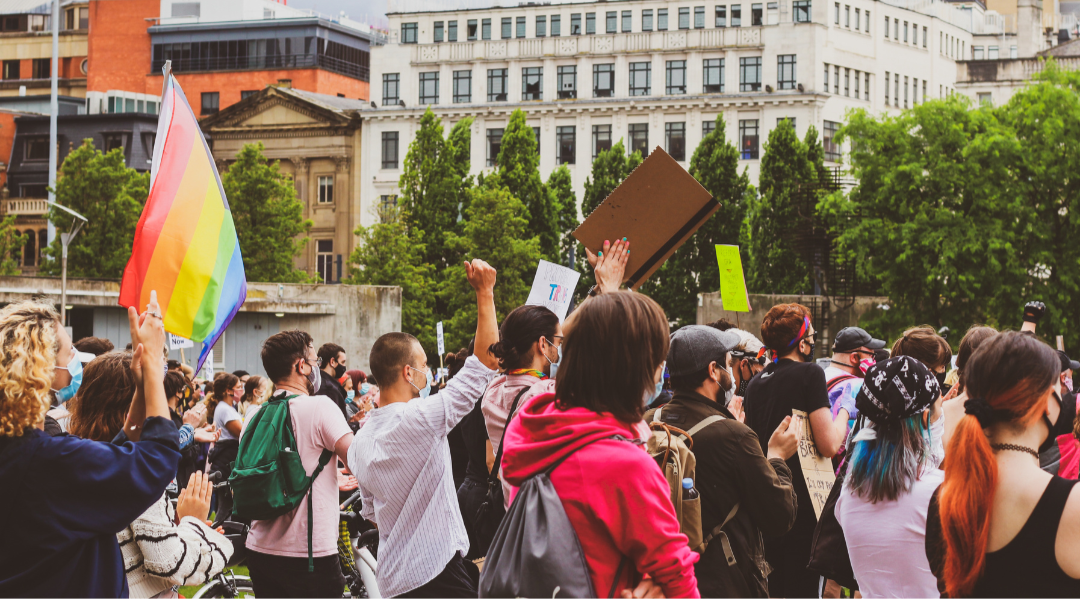
























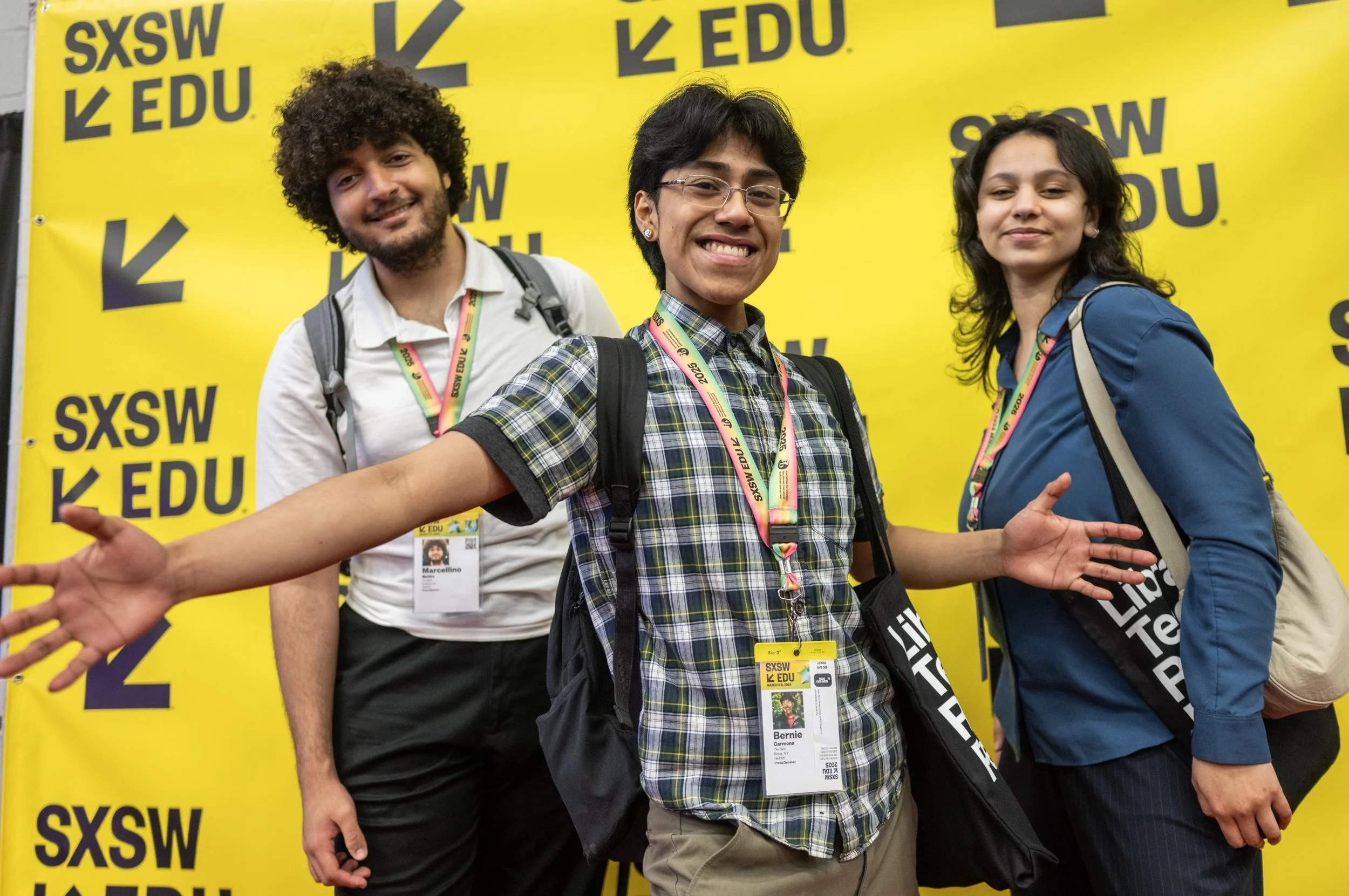




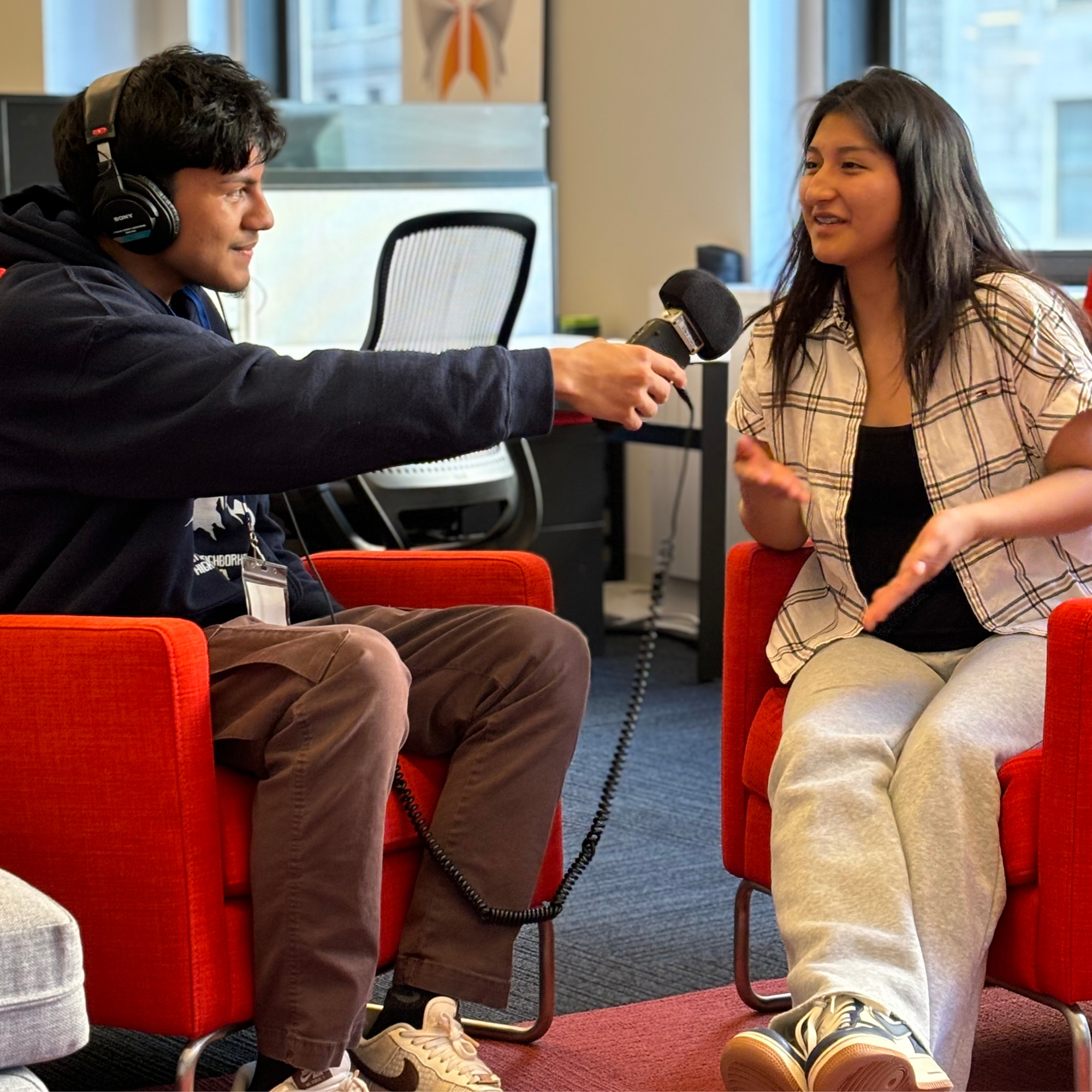



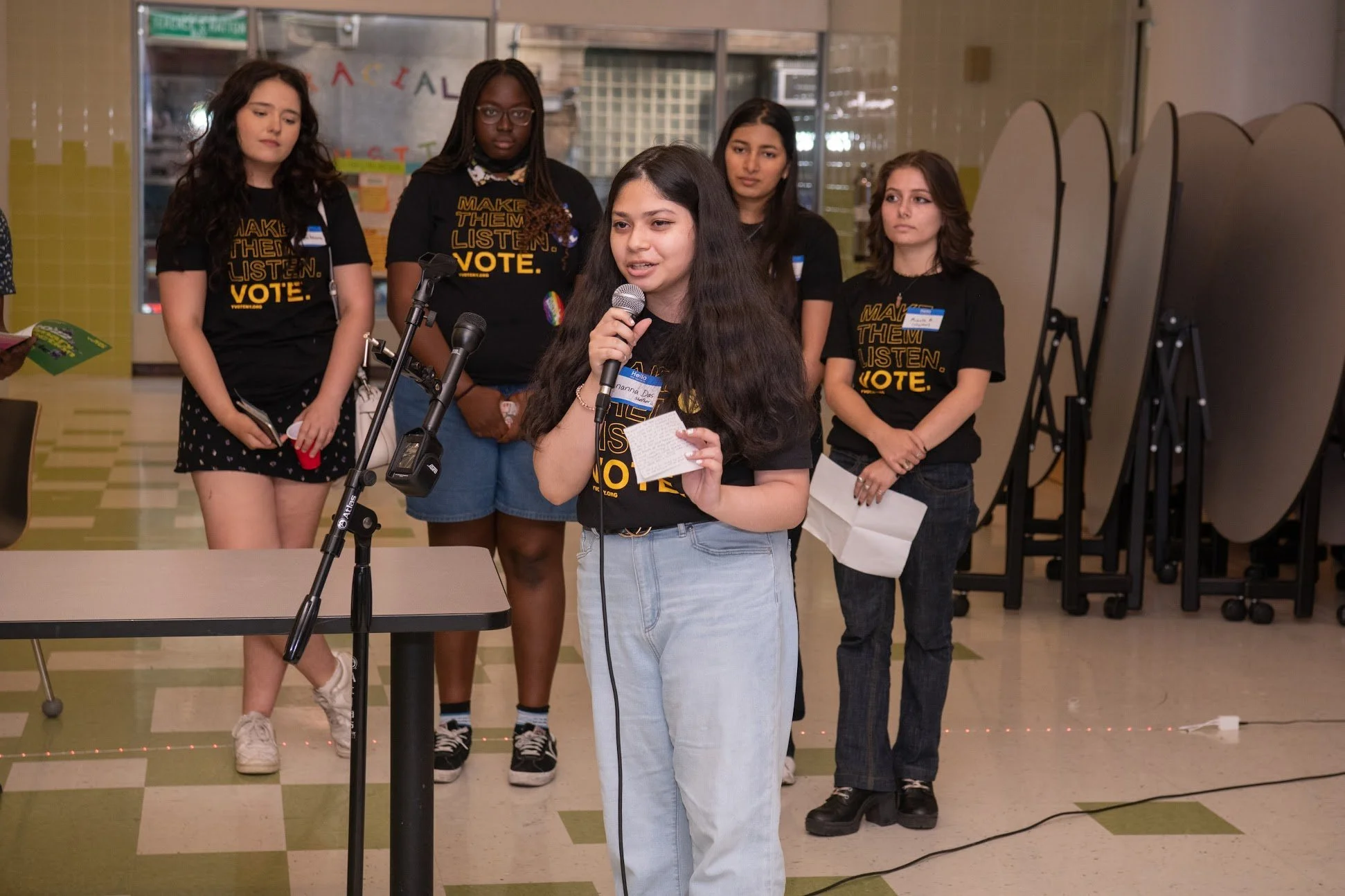








































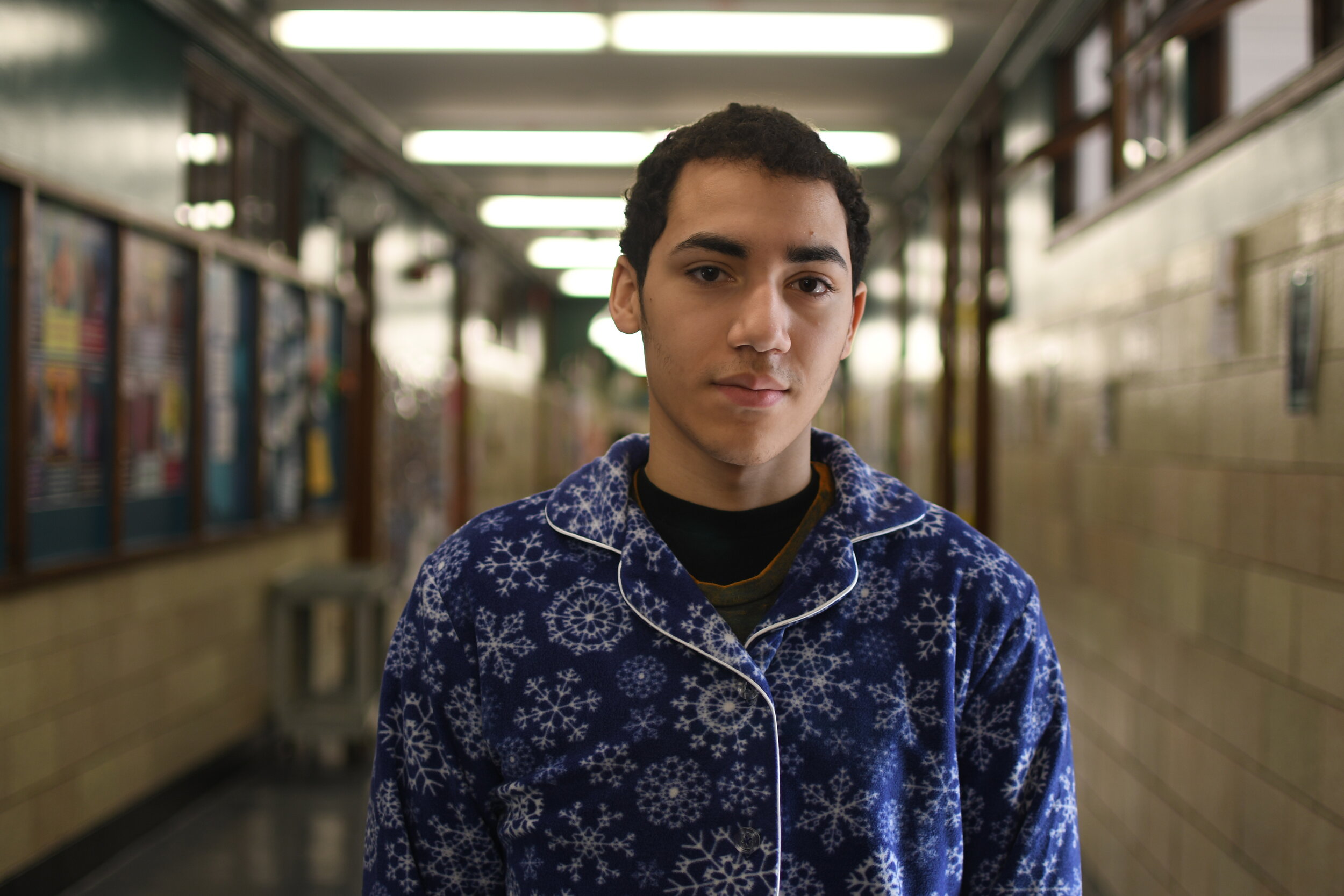






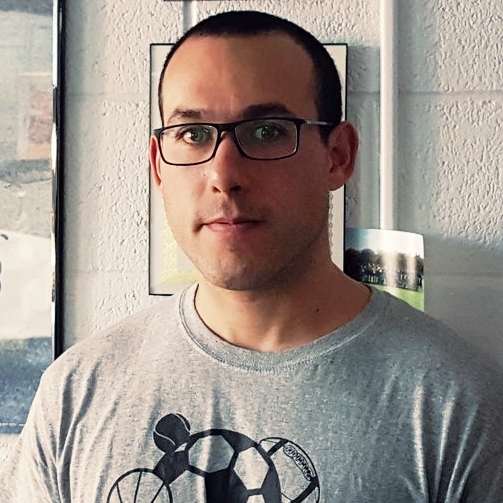
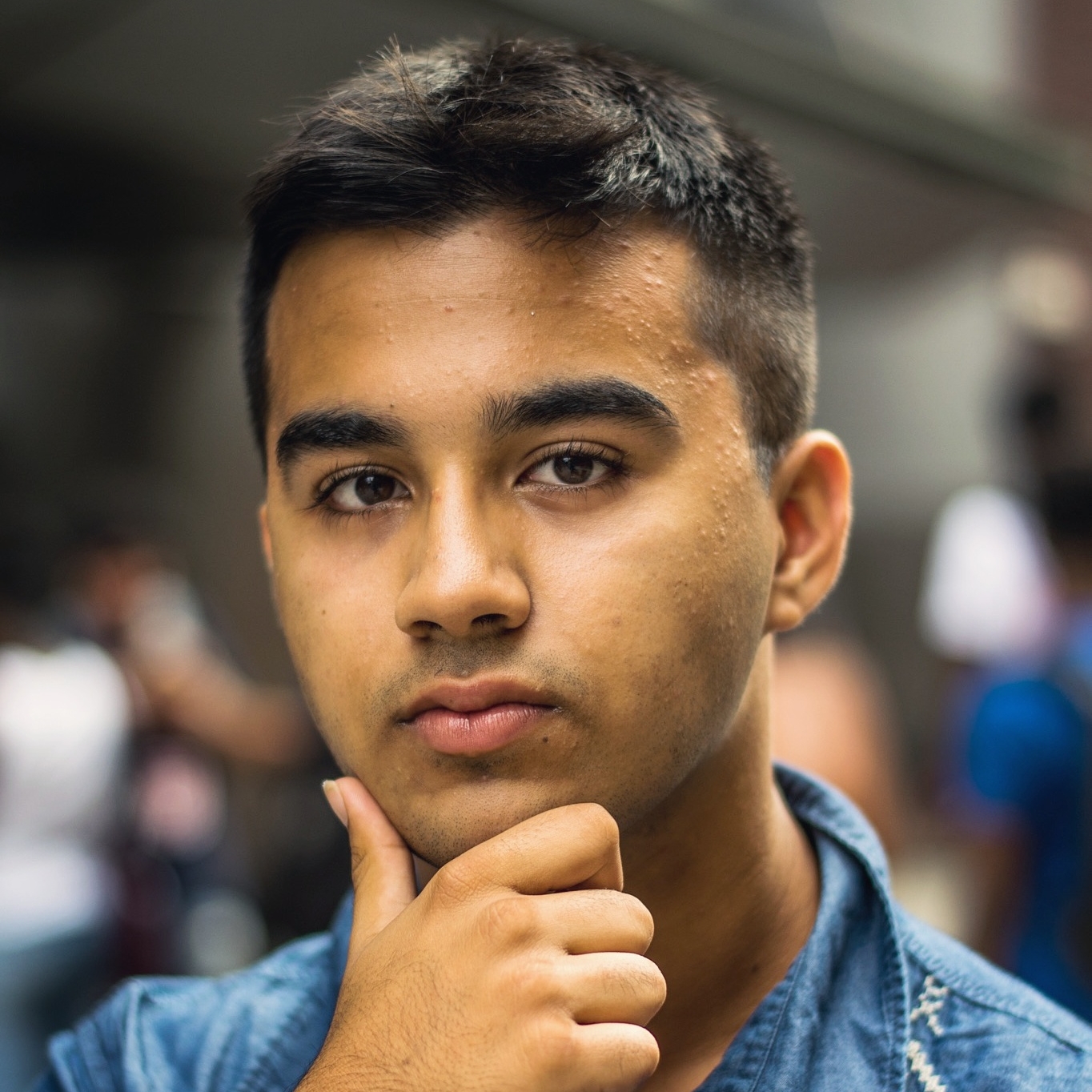
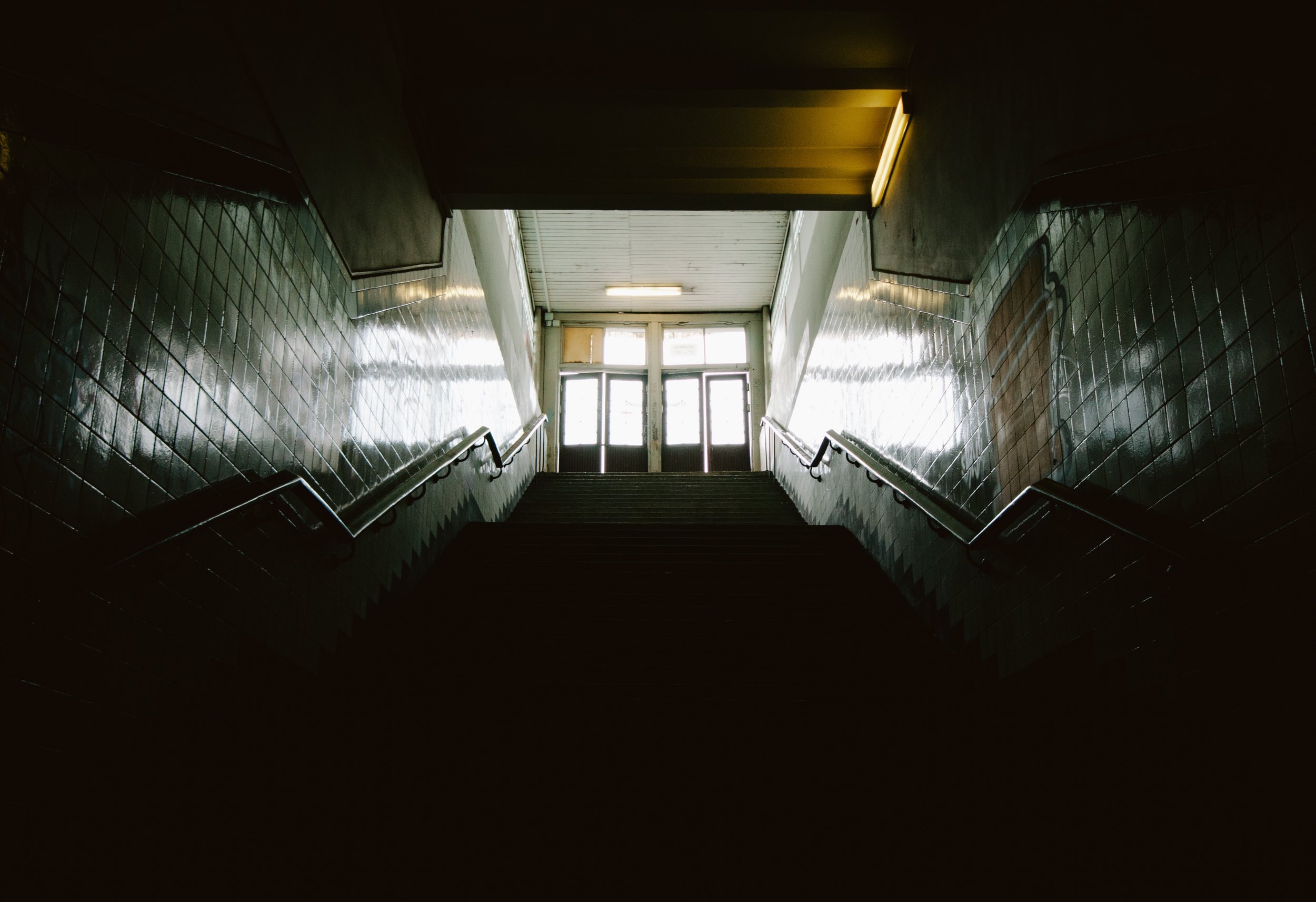




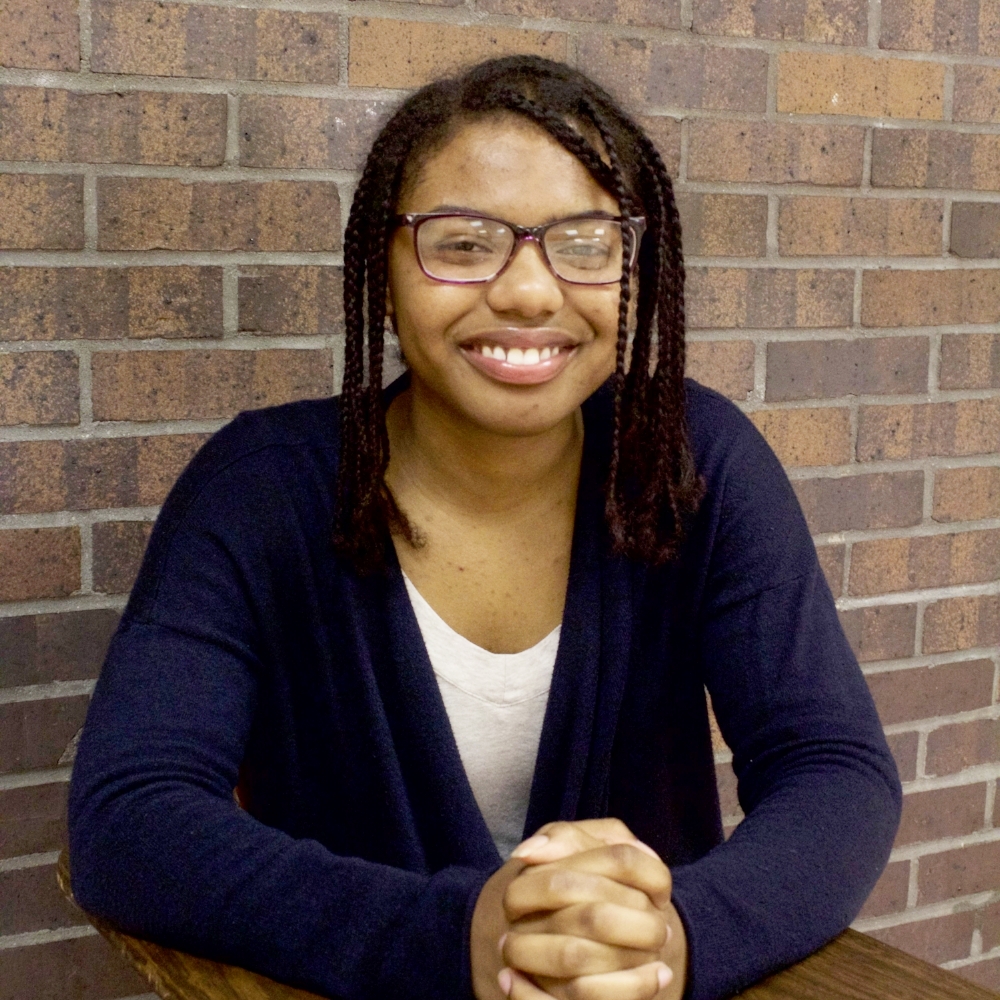
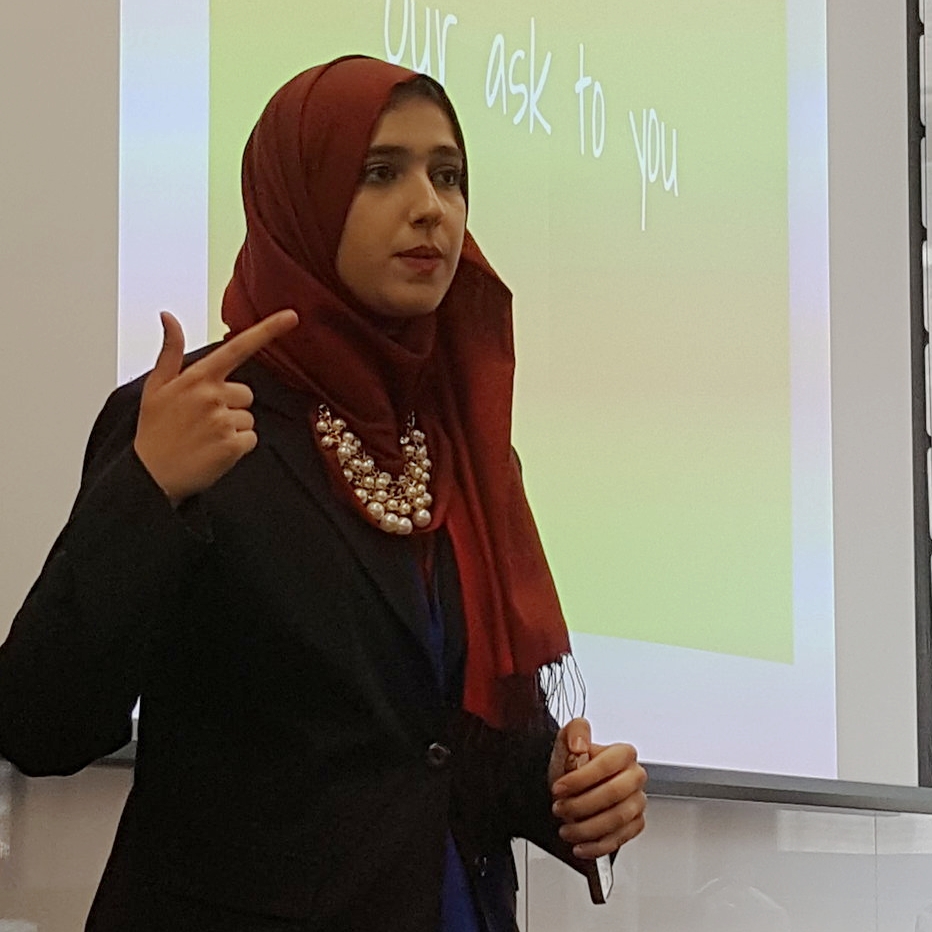


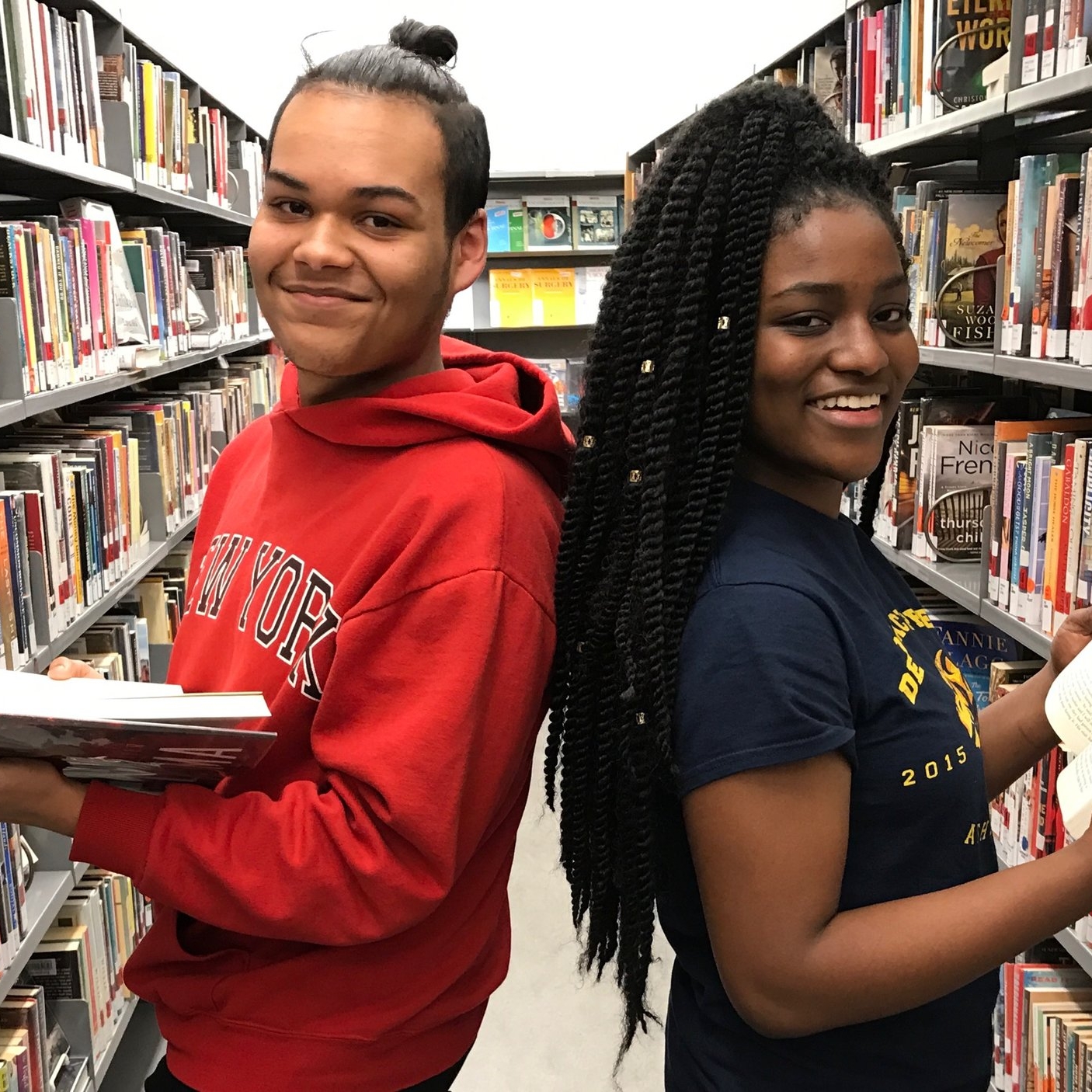



What if the key to better student attendance isn't more discipline but more support?